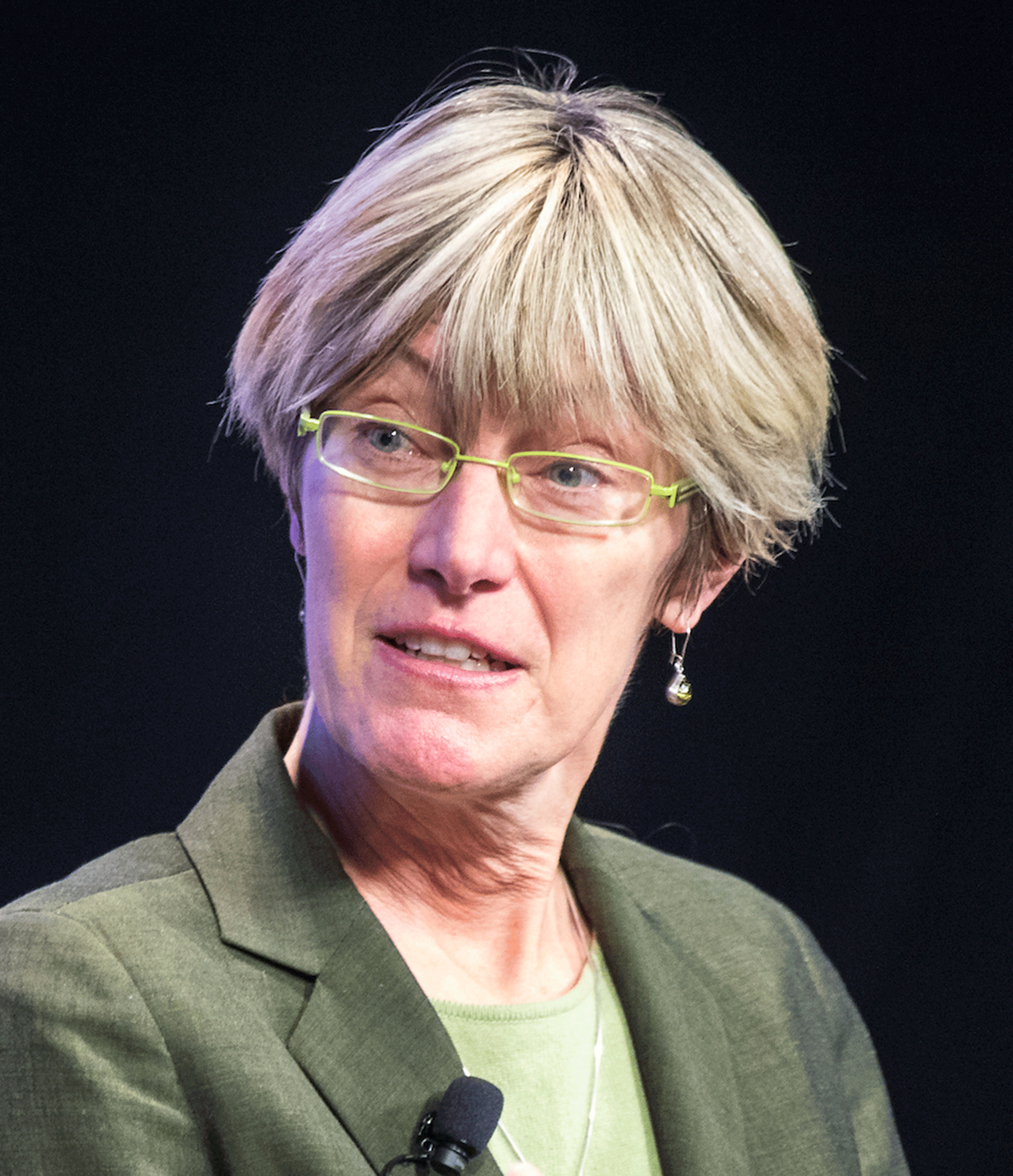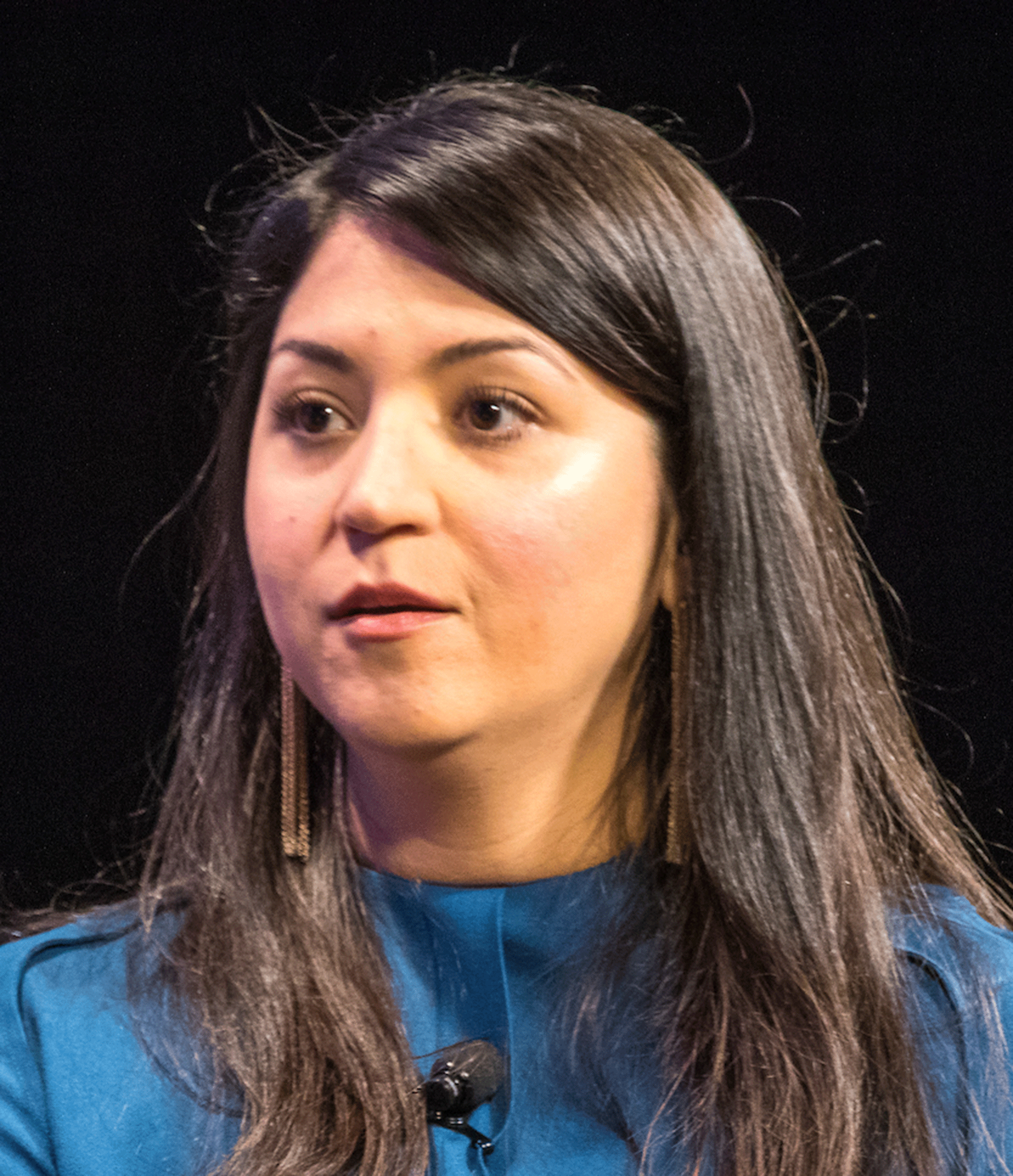Free-speech discussion at ASU highlights universities' responsibility to the pursuit of truth

As recently as January of this year, yet another college was in an uproar over a controversial speaker when University of Chicago students, faculty and alumni demanded the school rescind its invitation to former Trump White House Chief Strategist Steve Bannon to speak on campus.
In a discussion Monday night on Arizona State University’s Downtown Phoenix campus, Middlebury College Professor Allison Stanger said to do so would be to subvert the very purpose of higher education.
Allison Stanger
“It’s important that administrators stand up for the university’s core mission: the pursuit of truth,” she said, “and allowing that to take place rather than endorsing certain points of view.”
Reed College Assistant Professor Lucía Martínez Valdivia agreed with Stanger, adding that to deny certain people the right to speak on college campuses is to deny students the opportunity to learn.
Both Stanger and Martínez Valdivia were at ASU to partake in the fifth event in a yearlong series of lectures hosted by the School of Civic and Economic Thought and Leadership titled “Free Speech and Intellectual Diversity in Higher Education and American Society.” (Find details about an upcoming spring conference on the topic at the end of this story.)
The series, co-sponsored by the Walter Cronkite School of Journalism and Mass Communication and the Sandra Day O’Connor College of Law, began with a talk given by prominent First Amendment lawyer Floyd Abrams in September. At the time, Abrams said the one place free speech is most threatened now in the U.S. is the college campus.
Cronkite Associate Professor Joseph Russomanno, who moderated Monday evening’s discussion with Stanger and Martínez Valdivia, pointed out that they are two people who have lived that fact.
In March 2017, StangerAllison Stanger is the Russell Leng '60 Professor of International Politics and Economics at Middlebury College in Middlebury, Vermont. suffered a concussion and other injuries as a result of a protest that broke out on Middlebury’s campus in response to a scheduled talk by libertarian author and political scientist Charles Murray, and Martínez ValdiviaLucía Martínez Valdivia is an assistant professor of English and the humanities at Reed College in Portland, Oregon. spent roughly a year lecturing in what she described as a hostile environment when students at Reed routinely hijacked her classroom to protest the content that was being taught (mostly Plato and Aristotle), which they deemed pro-white supremacist.
Both women went on to pen op-eds based on their experiences — Martínez Valdivia for the Washington Post and Stanger for the New York Times — but say they understand the legitimate emotions and real anger that led to them.
Lucía Martínez Valdivia
“With the election of Donald Trump, there’s a sense among students of disenfranchisement, disempowerment … that they’ve never experienced before,” Martínez Valdivia said, especially for a generation that grew up during the Obama administration.
She reported seeing students at her school self-segregating as a result, creating closed spaces where only some are allowed to speak or even listen. That kind of behavior, she said, stems from a rising fear surrounding current rhetoric and the power of words.
And a lot of students nowadays don’t understand just what is and isn’t protected by free speech, as Martínez Valdivia has discovered. Many of her students believe hate speech is not protected by the First Amendment.
“That’s not the case,” she said. “Hate speech is absolutely protected. That doesn’t make it right, but it is absolutely [protected]. And once you start censoring, that is a very slippery slope.”
A slippery slope that can lead to infringing on the rights of others to be heard, Stanger pointed out. And unfortunately, the actions of students at Middlebury, Reed and other colleges around the country did just that, essentially bringing about the opposite of what they were trying to accomplish, she said.
During a question-and-answer session that followed the discussion, journalism undergraduate Ariel Salk asked the women what might be a better way for students to channel their frustrations.
Stanger agreed with Martínez Valdivia that leading by example is a good start, but it’s also about teaching students “how to fight back with words, how to formulate killer questions. … I think having a really great argumentative technique is going to serve you much better than some other protest techniques. Not that protest isn’t important, but knowing how to reason and argue is also important.”
Getting students out of their comfort zones and forcing them to think differently is something both professors say they try to do in their classrooms.
“I tell all my students on the first day of class: if you’re comfortable, I’m not doing my job,” Martínez Valdivia said. “The point of a liberal education is not to hold up mirrors, it’s to open windows.”
Free Speech and Intellectual Diversity in Higher Education: Implications for American Society
What: The School of Civic and Economic Thought and Leadership, in partnership with the Walter Cronkite School of Journalism and Mass Communication and the Sandra Day O’Connor College of Law, hosts a spring 2018 conference featuring a range of engaged thinkers.
When: Friday and Saturday, Feb. 23 and 24.
Where: Tempe (Friday) and Downtown Phoenix (Saturday) campuses.
Details: Continuing Legal Education Credit is available with this event. Find panel and registration information at ASU Events.
Top photo: Reed College Professor Lucía Martínez Valdivia (right) joins Middlebury College Professor Allison Stanger and moderator Joseph Russomanno, an associate professor at the Cronkite School, in addressing the topic "Speech on Campus: When Protests Turn Extreme" at the Walter Cronkite School of Journalism and Mass Communication on Monday evening. Photo by Charlie Leight/ASU Now
More Law, journalism and politics

Arizona secretary of state encourages students to vote
Arizona Secretary of State Adrian Fontes looked right and left, taking in the more than 100 students who gathered to hear him speak in room 103 of Wilson Hall.He then told the students in the Intro…

Peace advocate Bernice A. King to speak at ASU in October
Bernice A. King is committed to creating a more peaceful, just and humane world through nonviolent social change.“We cannot afford as normal the presence of injustice, inhumanity and violence,…

CNN’s Wolf Blitzer to receive 41st Walter Cronkite Award for Excellence in Journalism
Wolf Blitzer, the longtime CNN journalist and anchor of “The Situation Room With Wolf Blitzer,” will accept the 41st Walter Cronkite Award for Excellence in Journalism, Arizona State University has…

